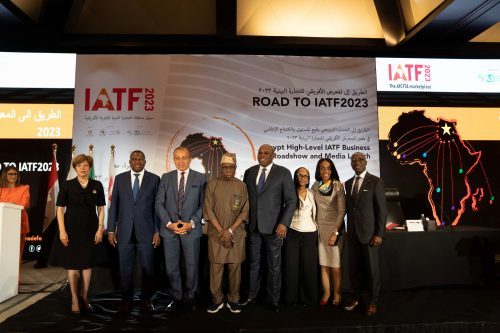Four months after launching its participation in the African Continental Free Trade Area (AfCFTA) under the Guided Trade Initiative, Nigerian exporters are facing challenges due to the country’s foreign exchange crisis. This initiative, which aims to foster trade across Africa, represents a combined Gross Domestic Product of $3.4 trillion.
In July, the Nigerian Federal Government announced that 10 companies would export various locally-made products to East, Central, and North African countries. Olusegun Awolowo, the National Coordinator of the Nigeria AfCFTA Coordination Office, highlighted this at the inaugural shipment ceremony in Lagos.
“The companies are 10 in number, and over the next few days, weeks, and months, they will be exporting Nigerian products to five countries across East, Central, and North Africa,” Awolowo stated. Among the participating companies are Le Look Nigeria Limited, which will export bags to Kenya; Secure ID Limited, exporting smart cards to Cameroon; and Dangote, sending clinkers to Cameroon. Avila Naturalle will export black soap and shea butter to Kenya.
However, Mrs. Chinwe Ezenwa, CEO of Le Look Nigeria Limited, expressed concerns over the high freight costs driven by the forex crisis. “The challenges have been logistics. The cost of freighting has increased significantly due to forex issues, affecting our export volume,” she said. She reported exporting only 5,000 bags instead of the anticipated 20,000 since the launch. Despite this setback, Ezenwa established a warehouse in Kenya and partnered with a local distributor, thanks to the opportunities provided by AfCFTA.
To support exporters, Ezenwa called on the government to provide better loan facilities for SMEs. “The way forward is to create more awareness and seek government assistance in providing loans at favorable interest rates to overcome these challenges,” she stated.
Dr. Obiora Madu, Director-General of the African Centre for Supply Chain, criticized the slow progress of Nigeria’s trade initiatives. He emphasized that the barriers to trade are rooted in a lack of export culture and limited skills among potential exporters. “It’s not the lack of opportunities, but rather an absence of an export culture and knowledge,” Madu noted.
As Nigeria continues to engage in AfCFTA, addressing these challenges will be crucial for maximizing the benefits of increased trade within Africa.










